Samoan culture is one of the most traditional in the South Pacific Islands with a rich lifestyle, tightly knit village communities and strong family networks. The traditional Samoan house or fale is the preferred choice and is even popular in central Apia. Fales are single structure dwellings with open sided walls of coconut fronds that can be lowered or raised at will. The kitchen and loo are separate buildings out the back. Most fales are built on traditional stone foundations.
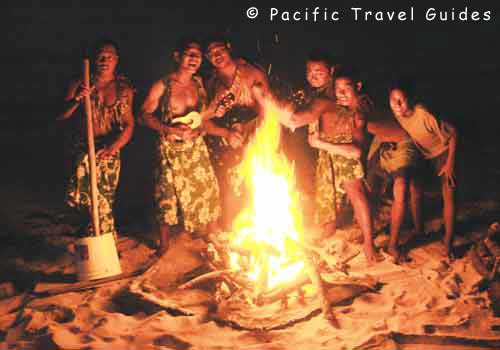
beach party

boy
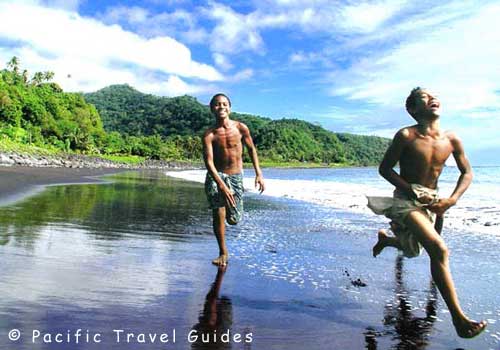
beach run
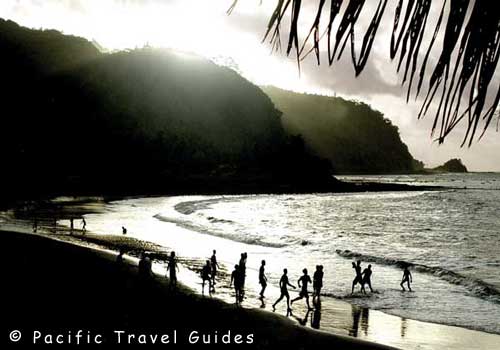
rugby

church
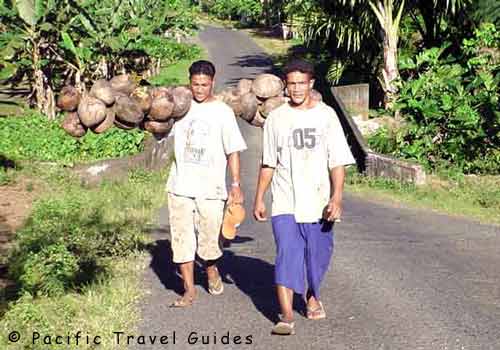
coconuts
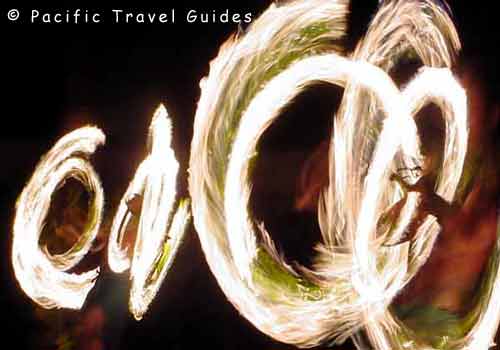
fire dance
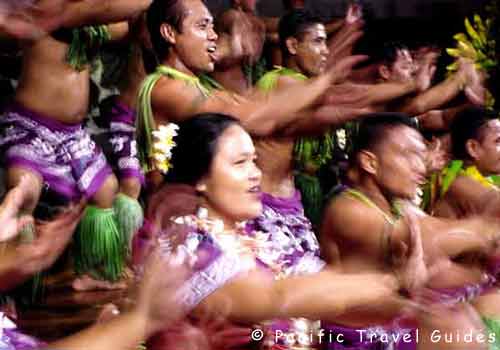
dance

family
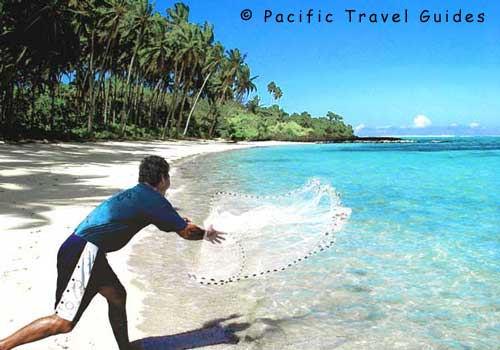
net fishing
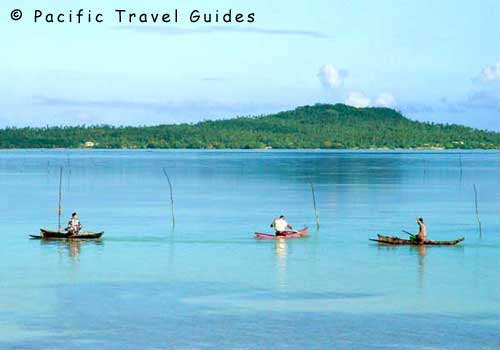
canoe fishing
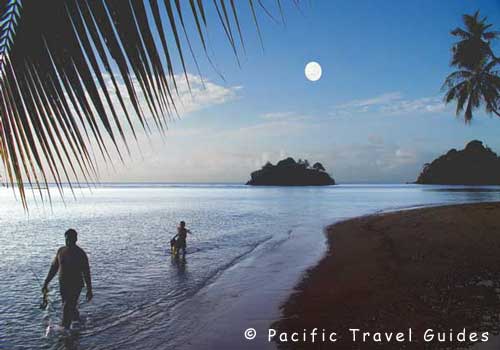
spear fishing
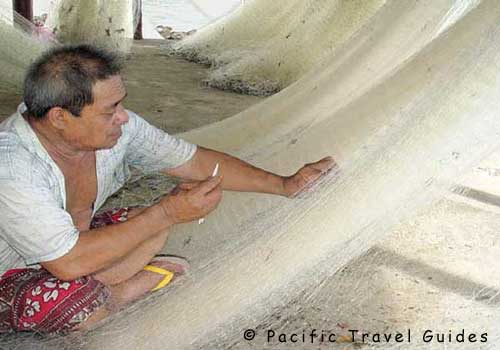
net repair

fish sale
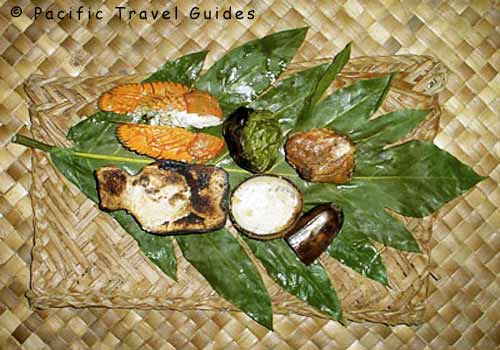
feast
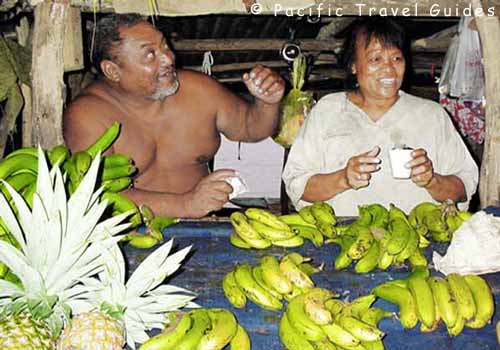
fruit stall

girl
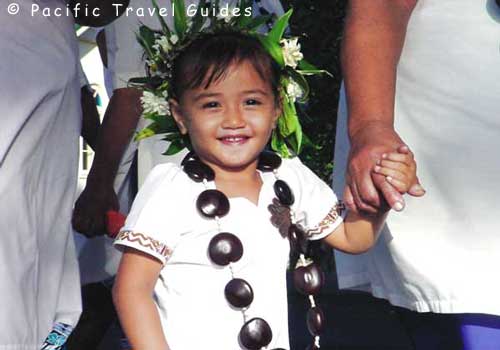
parade
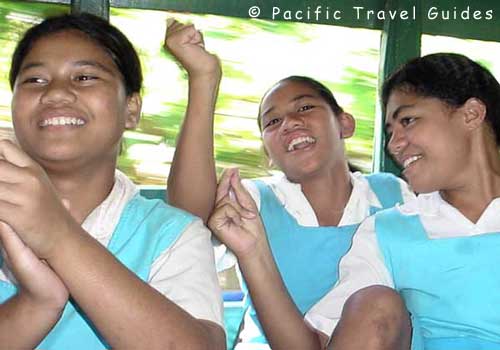
school girls
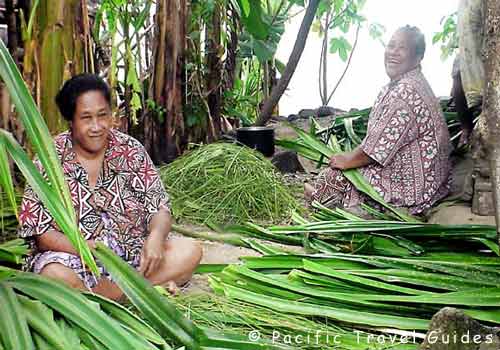
weaving
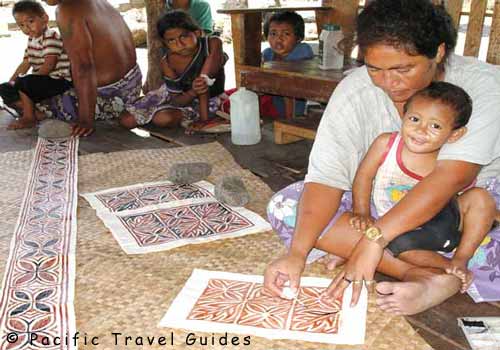
tapa cloth
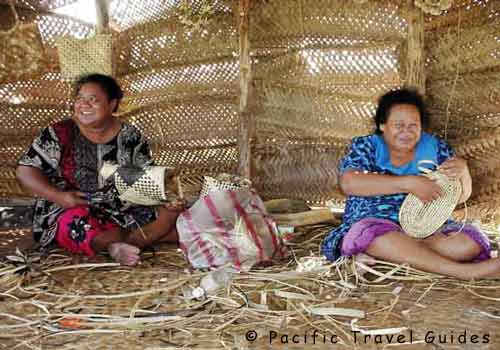
handicrafts
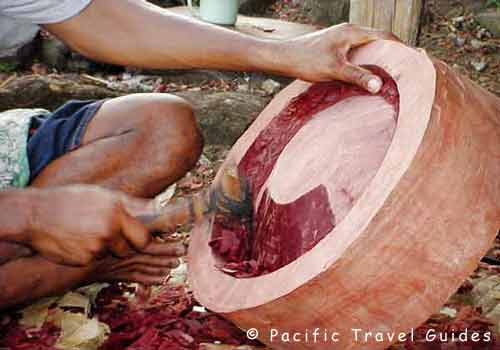
wooden bowl
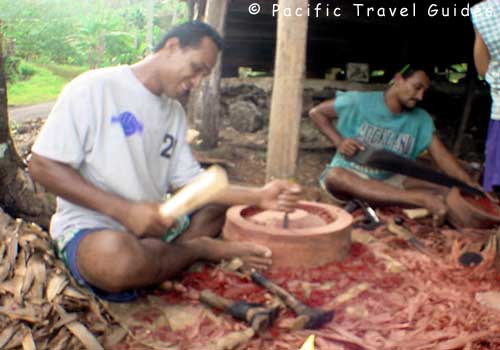
wood carving
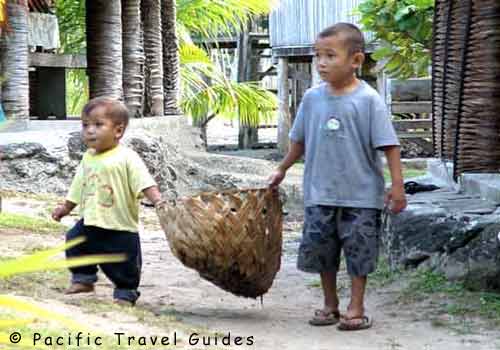
village
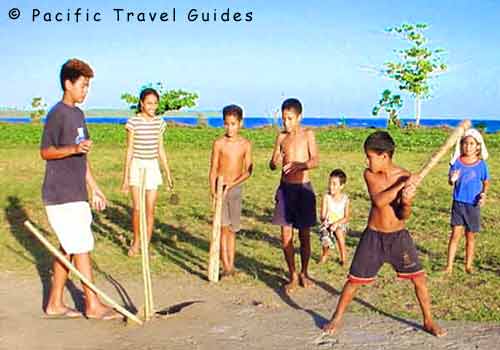
kiriti
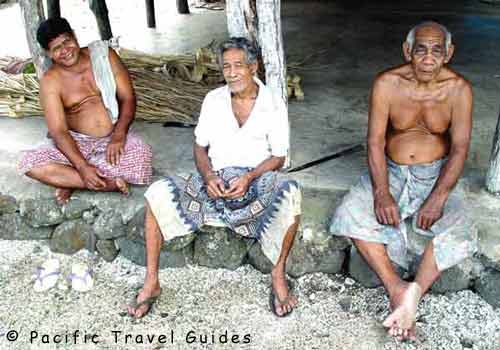
village elders

tattoo
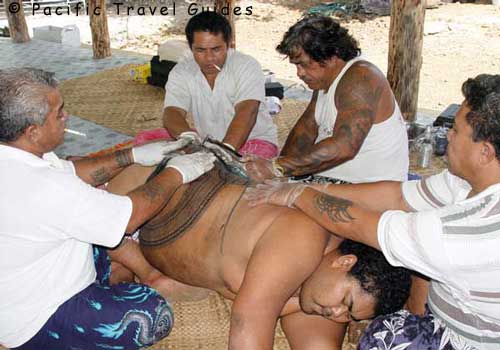
tattooing
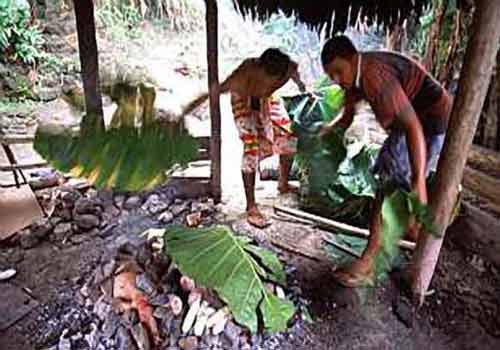
umu feast
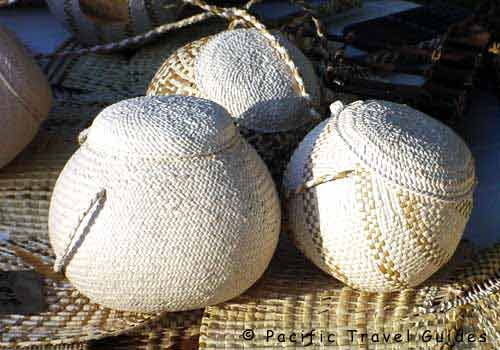
baskets
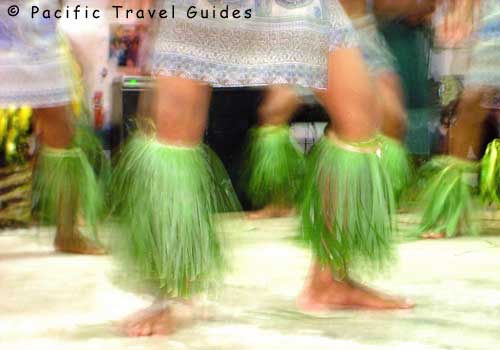
baskets
About Samoan Culture
Villages are spread out along the main roads around Samoa. Few houses have defined boundaries although flowers are sometimes planted as a hedge. Most villages are extremely well kept and free of litter. Pigs are a common sight grazing along the roadside but be warned - if you kill one you are expected to pay up.
Samoans are devout Christians and the church is the dominant icon in Samoan culture. A high percentage of the family income is donated to church funds and villages and church denominations compete by building the largest most elaborate churches.
Weaving hats, baskets and mats from pandanus leaves is a common village pastime for women. These social gatherings pass away time and help bring in some money. Traditional hand crafted mats are still used in all ceremonial occassions.
Delicate hand movements and gentle hip swaying are performed by women in all Samoan dance routines. Flowers and printed dresses are worn for most village events with the traditional costumes of mats and feather head dresses reserved for national events, important village ceremonies and the popular tourist performances. The male dance performance is far more upbeat with vigorous movements, body slapping and chanting accompanied by the high tempo beating of drums.
Any ceremony or gathering will include a large feast. Food including taro root-crops and fish wrapped in banana leaves is piled upon hot stones and cooked slowly in an underground oven called an umu.
Tattooing is one of the unique icons of Samoan culture. Although practised by most of its Polynesian neighbours, Samoa is one of the few islands where this tradition is still commonly practised. Both men and women can have tattoos, women covering their upper thighs and men up to the midriff.
In ancient times, Samoans believed in a spirit world. Lava tubes on the island of Savaii were believed to be doorways to this spirit world and chiefs and village elders were often buried deep inside these lava tubes.